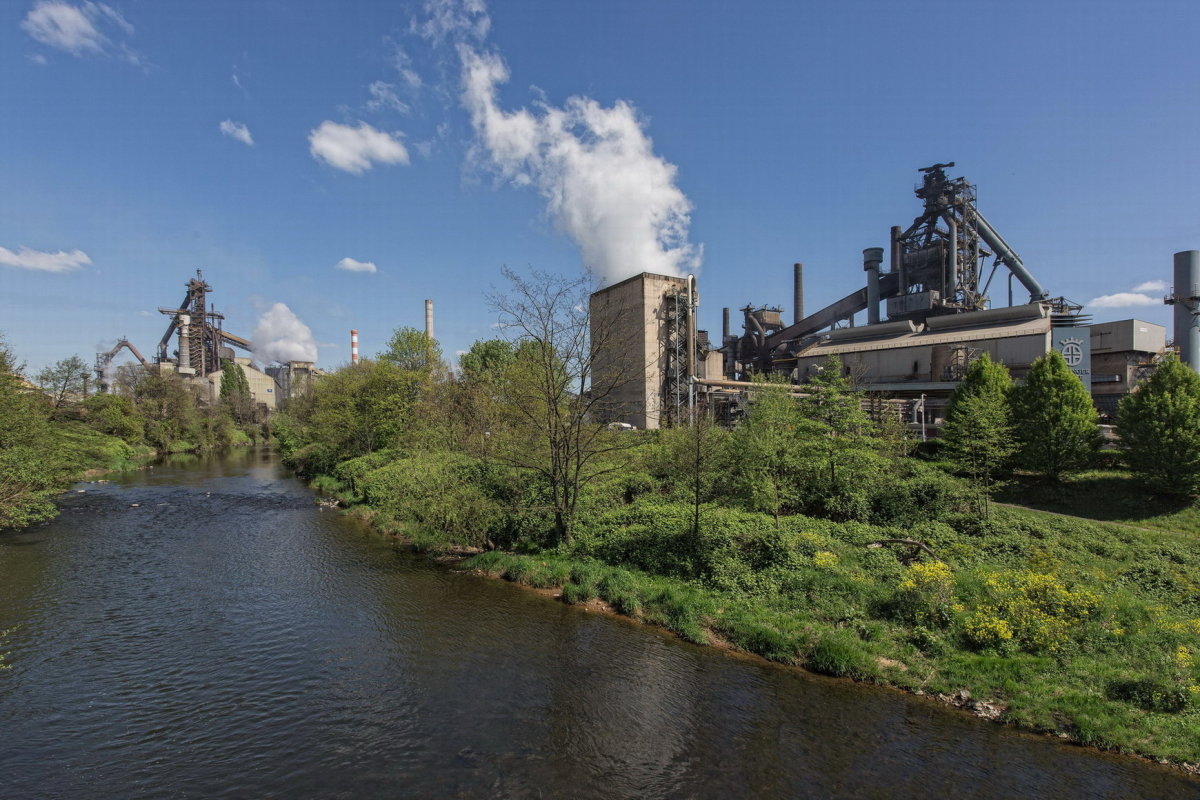
- News & Information
- Press Releases
Sustainable steel production at the Saar
24. May 2019
Dillinger and Saarstahl are for the first time using hydrogen in blast furnaces to reduce carbon emissions
Dillinger and Saarstahl are taking a new approach to reducing carbon emissions and are for the first time using hydrogen in the two blast furnaces of ROGESA Roheisengesellschaft Saar mbH (ROGESA). An investment volume of €14 million will be used for an innovative system that significantly reduces carbon emissions at the Dillingen site.
“As major steel producers at the Saar, we are committed to the carbon-reduction targets and are creating the technical conditions with this forward-looking investment for future hydrogen-based developments that avoid carbon emissions," said Martin Baues, Technical Director of Dillinger and Saarstahl. “This is an important component in our objective to have the most technically advanced steel industry here at the Saar.”
Intensive research aimed at low-carbon steel production has been ongoing here for some time now. The research efforts have included, among other things, extensive studies and pilot plant trials carried out on the use of hydrogen-rich coke gas in blast furnaces, and large-scale concepts have been derived from this research.
Now there are plans to construct an innovative system to introduce a portion of the hydrogen-rich coke gas produced inside the integrated steel plant into the blast furnace. This measure leads to hydrogen replacing carbon as a reducing agent, thus achieving a significant reduction in carbon emissions. The investment includes the necessary machinery and plant components at both blast furnaces as well as the associated infrastructure. The construction work will largely be carried out during ongoing operations, so that this measure is anticipated to be implemented at the two blast furnaces as early as 2020.
“ROGESA’s blast furnaces are already among the most modern and efficient in Europe,” Martin Baues said. “We are continuously improving the environmental protections at our companies, and in the past 15 years alone we have invested around €500 million in environmental protection measures at the Dillingen site. By using hydrogen instead of carbon in the coke gas, we are forging a visionary new path toward reducing carbon emissions, and in doing so, we want to consistently use all possible methods to reduce carbon on the blast furnace route. Further research and development activities are aimed at helping leverage additional potential. We will be depending on support from subsidies for this,” Baues continued.
About ROGESA
ROGESA Roheisengesellschaft Saar mbh, Dillingen, is a joint subsidiary of Aktien-Gesellschaft der Dillinger Hüttenwerke (Dillinger), Dillingen, and Saarstahl AG, Völklingen, (with each company holding a 50% direct and indirect share). ROGESA was founded in 1981 and produces today with two blast furnaces. The hot metal produced supplies the steel plants of Dillinger and Saarstahl.

Innovative top-quality steel products, total orientation around our customers' needs and unceasing technological development in close cooperation with our partners form the basis of our success - as they have for more than 333 years.
© 2016 Dillinger All rights reserved.
Contact
AG der Dillinger Hüttenwerke
Werkstraße 1
66763 Dillingen/Saar
Tel.: +49 6831 47 0
Fax: +49 6831 47 2212
E-Mail: info@dillinger.biz
Imprint
| Data privacy statement
| T&C



